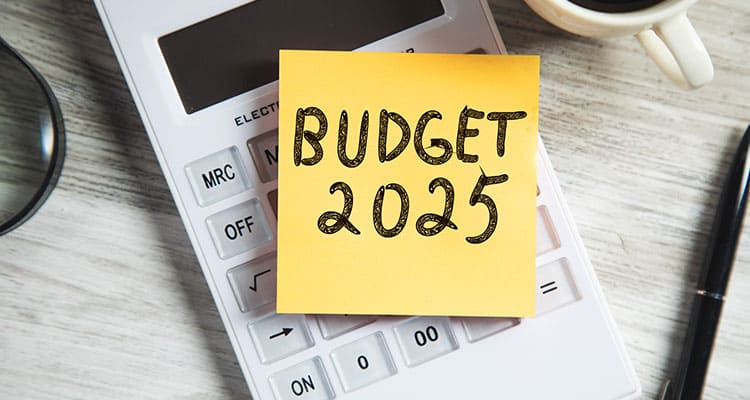Healthcare priorities Union Budget 2025 Industry voices call for diagnostics and Pharma players

While an increase in healthcare spending in the upcoming Union Budget lies on top of the list of demands from India’s healthcare industry, hopes for stronger support towards R&D, a PLI-like scheme for hospital bed additions and cut in taxes to reduce input costs are also running high.
Dr Sandip Shah, Joint Managing Director, Neuberg Diagnostics:
“The diagnostics industry expects the Union Budget 2025 to prioritise increased investment in healthcare infrastructure, with a focus on strengthening diagnostic capabilities across urban and rural areas. Key expectations include financial incentives to promote the development of advanced diagnostic technologies, reduced GST on diagnostic services and equipment, and enhanced funding for government-led screening programs for non-communicable diseases and infectious conditions.
Additionally, the industry seeks support for public-private partnerships to improve access to affordable diagnostic solutions, incentives for R&D in molecular diagnostics and AI-driven tools, and initiatives to expand laboratory networks in underserved regions. Policies encouraging digital integration and seamless data sharing to build a robust diagnostics ecosystem are also critical to the industry’s growth and to advancing India’s healthcare system.”
Abhishek Sinha, Co-Founder, HealSpan:
“We urge the Finance Minister to prioritise comprehensive healthcare funding through the Ayushman Bharat scheme to foster a more inclusive approach to healthcare. Additionally, investing in pharmaceutical innovation is critical, especially as a tropical country, where research efforts should focus on combating tropical diseases. In light of recent global health challenges, it is imperative to strengthen our healthcare infrastructure to better withstand future crises and enhance accessibility for all citizens. Furthermore, GST rates must be rationalised, adopting a data-driven approach to reduce the bureaucratic hurdles that have crept into recent decision-making processes.”
Rakesh Menon, Founder & CEO, Previu Health:
“India’s 2025-26 Budget must prioritise Cancer Care. With 1 in 9 Indians at risk of cancer and 75-80 per cent of cases detected at late stages, urgent action is needed to address this growing crisis. The 2025-26 Budget must prioritise cancer care to mitigate its devastating impact on individuals and the economy.
Investing in cancer prevention through vaccinations, such as for cervical cancer, alongside awareness campaigns, is crucial to reducing the incidence of the disease. Early detection through advanced technologies is equally vital to improve outcomes and lower treatment costs.
While initiatives like the Ayushman Card have improved healthcare affordability, the focus must go beyond affordability to include prevention and early detection. These measures will save lives, ease financial and logistical burdens on families, and reduce the strain on the healthcare system.”
Dr Sameer Bhati, Director of Star Imaging and Path Lab :
“As we approach Union Budget 2025-2026, the diagnostics sector has high hopes for financing healthcare and improving accessibility. COVID-19 pandemic underscored the value of diagnostics in detecting and managing disease early. Yet, two-thirds of diagnostic facilities are geographically concentrated in the cities, which deprives rural communities.Transformative diagnostics are fundamental to driving the agenda of health care.
With 0.7 per cent of its GDP spent on R&D (as compared to the global average of 2.2 per cent), investments in research can bring in transformative technologies like AI-driven diagnostics and gene-based testing for precision and efficiency.Tax breaks and subsidies on diagnostic services can also make preventive healthcare affordable, as 48 per cent of healthcare spending in India is currently out-of-pocket spending. Digital health is also very much in the mix — just the likes of telepathology and AI are creating accuracy and access. This level of performance in AI-driven diagnostics has demonstrated up to 95 per cent accuracy in identifying certain conditions, which would greatly improve outcomes.”
Executive expect the healthcare spending to make up atleast 2.5-3% of the upcoming Union Budget of 2025.

Indian pharmaceutical and hospital majors are pinning their hopes on Finance Minister Nirmala Sitharaman to deliver a booster dose for the sector with higher healthcare spending in the upcoming Union Budget. The sector is also eyeing tax breaks on research and development, as many firms shift focus to complex drugs.
Support for R&D
Sudarshan Jain, Secretary General of the Indian Pharmaceutical Alliance, advocated for allocating at least 10 percent of the National Research Fund to life sciences and reinstating 200 percent weighted deductions for R&D expenses.
On similar lines, Ameera Shah, Promoter and Executive Chairperson of Metropolis Healthcare, called for increased incentives for R&D in diagnostic technology to position India as a global healthcare innovation leader.
Increased spending
The healthcare industry continues to push for higher budget allocations, seeing it as a crucial measure for bolstering healthcare infrastructure. With the Union Budget approaching, these expectations are gaining momentum once again.
“An increase in the healthcare budget allocation to 2.5-3 percent of GDP is crucial for strengthening healthcare infrastructure, which will benefit both innovation and access to care across the country,” said Himanshu Baid, Managing Director, Poly Medicure.
Demands from the hospitals and diagnostics sector
Top executives of hospital majors are pushing for an Infrastructure Linked Incentive (ILI) for new hospitals, reductions in GST for essential services, and lower customs duties on advanced cancer treatment drugs and devices.
Suneeta Reddy, Managing Director of Apollo Hospitals, highlights the burden of input GST, which escalates costs by 8-10 percent. She suggests reducing GST on key input services like lease rentals, housekeeping, and man power to 5 percent.
To address the shortage of hospital beds, Reddy vouches for an ILI scheme similar to the PLI framework. “The government can consider an incentive of 50 percent on the cost of capex incurred for infrastructure creation of any new hospital over 100 beds as an additional allowance to be set off against the company’s tax payable. This can significantly facilitate faster capacity creation in the industry which will bode well for the patients and the population at large,” says Reddy.
Meanwhile, diagnostic companies are also calling for an increase in tax exemptions for preventive health check-ups from Rs 5,000 to Rs 10,000, with the benefit extended to multiple family members, fostering a culture of preventive healthcare.
With Thanks and Reference to : https://www.expresshealthcare.in/news/union-budget-2025-industry-voices-call-for-diagnostics-and-healthcare-priorities/447605/ And https://www.moneycontrol.com/news/business/markets/budget-2025-pharma-players-want-tax-cuts-stronger-support-for-r-d-higher-healthcare-spend-12907969.html






